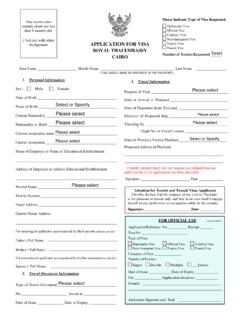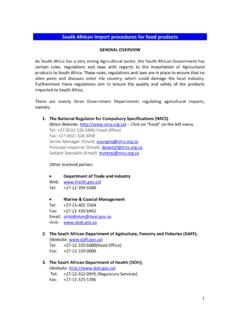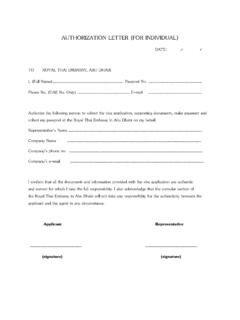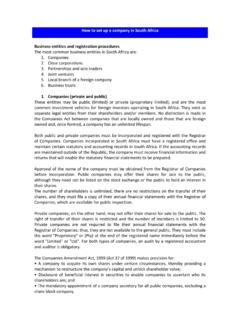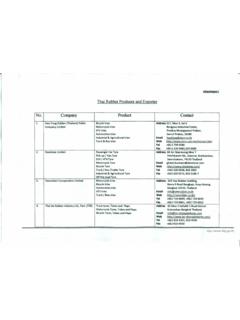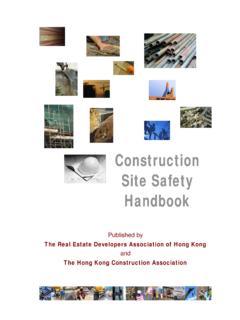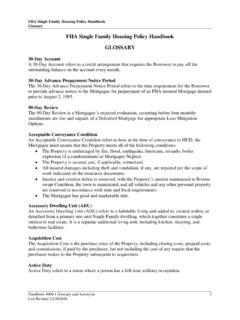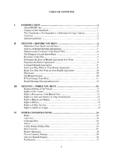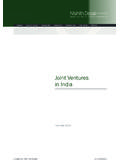Transcription of Section 5 Starting a business in Thailand - Thai …
1 Ministry of Foreign Affairs business HandbookSection 5: Starting a business in ThailandPage 1 Section 5 Starting a business in ThailandSection profileThis Section deals primarily with legal and management issues involved with establishing abusiness entity in Thailand . Details are provided on tax policy, trade and investmentincentives, labour laws and immigration policy, industrial licensing, and intellectual of business venture types of collaborative types of corporate Foreign business Act and restricted and trade and related , visas and work licensing and property and import of foreigners to possess real resources and Northern Northeastern Upper Central Eastern Southern Western region50 Ministry of Foreign Affairs business HandbookSection 5.
2 Starting a business in ThailandPage Types of business organisationsSole proprietorshipsA sole proprietorship is a business owned by one person with unlimited liability. Aproprietor s business and personal assets are subject to attachment and other forms of legalaction. Foreigners, unless covered under the United States- Thailand Treaty on Amity andEconomic Co-operation, are not permitted to operate sole acknowledges three general types of partnerships. The main difference betweenthem is the degree of liability of the partners under each type of organisation.
3 Partnershipsare not promoted by the Board of Investment, and thus are rarely used by foreign investors inThailand. The three types are: Unregistered ordinary partnerships, in which all partners are jointly and wholly liable forall obligations of the partnership Registered ordinary partnerships. If registered, the partnership becomes a legal entity,separate and distinct from the individual partners Limited partnerships. Individual partner liability is restricted to the amount of capitalcontributed to the partnership. Limited partnerships must be companiesThere are two types of limited companies private or closely held companies, and publiccompanies.
4 The first are governed by the Civil and Commercial Code, the second by thePublic Company limited companiesIn Thailand , they are similar to those of Western corporations, and are the most popularvehicle used to establish a permanent business in Thailand . Although there is no establishedminimum level of capitalisation, the private limited company s capital must be sufficient toaccomplish its objectives. All of the shares must be subscribed to, and at least 25 percent ofthe subscribed shares must be paid up. It should also be noted that private limited companiesare required to have capitalisation of two million baht, fully paid up, per each work permitthe company desiresA minimum of seven shareholders is required at all times.
5 A private limited company may bewholly-owned by aliens. However, in those activities reserved for Thai nationals, aliens participation is generally allowed up to 49 percent. Meetings of shareholders and directorsmust conform to the requirements set forth in the Civil and Commercial Code and/or theArticles of Association of the limited companiesSuch companies registered in Thailand may, subject to the compliance with the prospectus,approval, and other requirements, offer shares, debentures and warrants to the public and mayapply to have their securities listed on the Stock Exchange of Thailand (SET).
6 A public limited company must: Have a minimum of 15 promoters for the formation and registration of the Memorandumof Association Have not less than half of the promoters domiciled in Thailand Have the promoters subscribed shares, which will be paid up in money, equal to not lessthan percent of the registered capital. These prescribed shares cannot be transferredwithin two years of the date of registration of the company, except with the consent of ageneral meeting of shareholdersMinistry of Foreign Affairs business HandbookSection 5: Starting a business in ThailandPage 3 Have a statutory meeting within two months from the date when the shares have beenfully subscribed, as specified in the prospectus, but not more than six months from thedate of approval of the memorandum by the registrar Have a minimum of five directors, at least half of whom must be domiciled in Thailand Ensure that the directors are 20 years of age or older.
7 And they must have clean legalrecords Have subscribers pay the full amount of each share Not stipulate any provisions which would prevent shareholders from becoming directorsof the company Hold a meeting of the Board of Directors at least once every three months where adirectors certificate must be obtained and the minutes must be recorded Have an auditor present at all times when the balance sheet is submitted for adoption bygeneral meeting of the shareholdersA private limited company may be transformed into a public limited company by passing aspecial resolution of the shareholders as stipulated by the Civil and Commercial for forming a limited company: In order to set up a limited company in Thailand ,the following procedures should be followed:Corporate name reservationThe name to be reserved must not be the same or close to that of other companies.
8 Certainnames are not allowed and therefore the name reservation guidelines of the CommercialRegistration Department in the Ministry of Commerce should be observed. The approvedcorporate name reservation is valid for 30 days. The corporate name can be reserved for anadditional 30 days upon expiration of the initial a memorandum of associationA memorandum of association to be filed with the Commercial Registration Department mustinclude the name of the company that has been successfully reserved, the province where thecompany will be located, its business objectives, the capital to be registered, and the namesof the seven promoters.
9 The capital information must include the number of shares and thepar value. At the formation step, the authorised capital, although partly paid, must all besubscribed by the initial shareholders. Thai law does not provide for treasury there are no minimum capital requirements, the size of the capital should berespectable enough and adequate for the intended business memorandum registration fee is 50 baht per 100,000 baht of registered capital. Theminimum fee is 500 baht, the maximum 25,000 a statutory meetingOnce the share structure has been defined, a statutory meeting is called.
10 A minimum of 25percent of the par value of each subscribed share must be three months of the date of the Statutory Meeting, the directors must submitapplications to establish the company. Company registration fees are 500 baht per 100,000baht of registered capital. The minimum fee is 5,000 baht; the maximum is 250,000 registrationBusinesses liable for income tax must obtain a tax card and number for the companyfrom the Revenue Department within 60 days of incorporation or the start of of Foreign Affairs business HandbookSection 5: Starting a business in ThailandPage 4 business operators earning more than 600,000 baht per annum must register for VAT within30 days of the date they reach 600,000 baht in requirements: Firms must keep books and follow accounting procedures specifiedin the Civil and Commercial Code, the Revenue Code and the Accounts Act.



